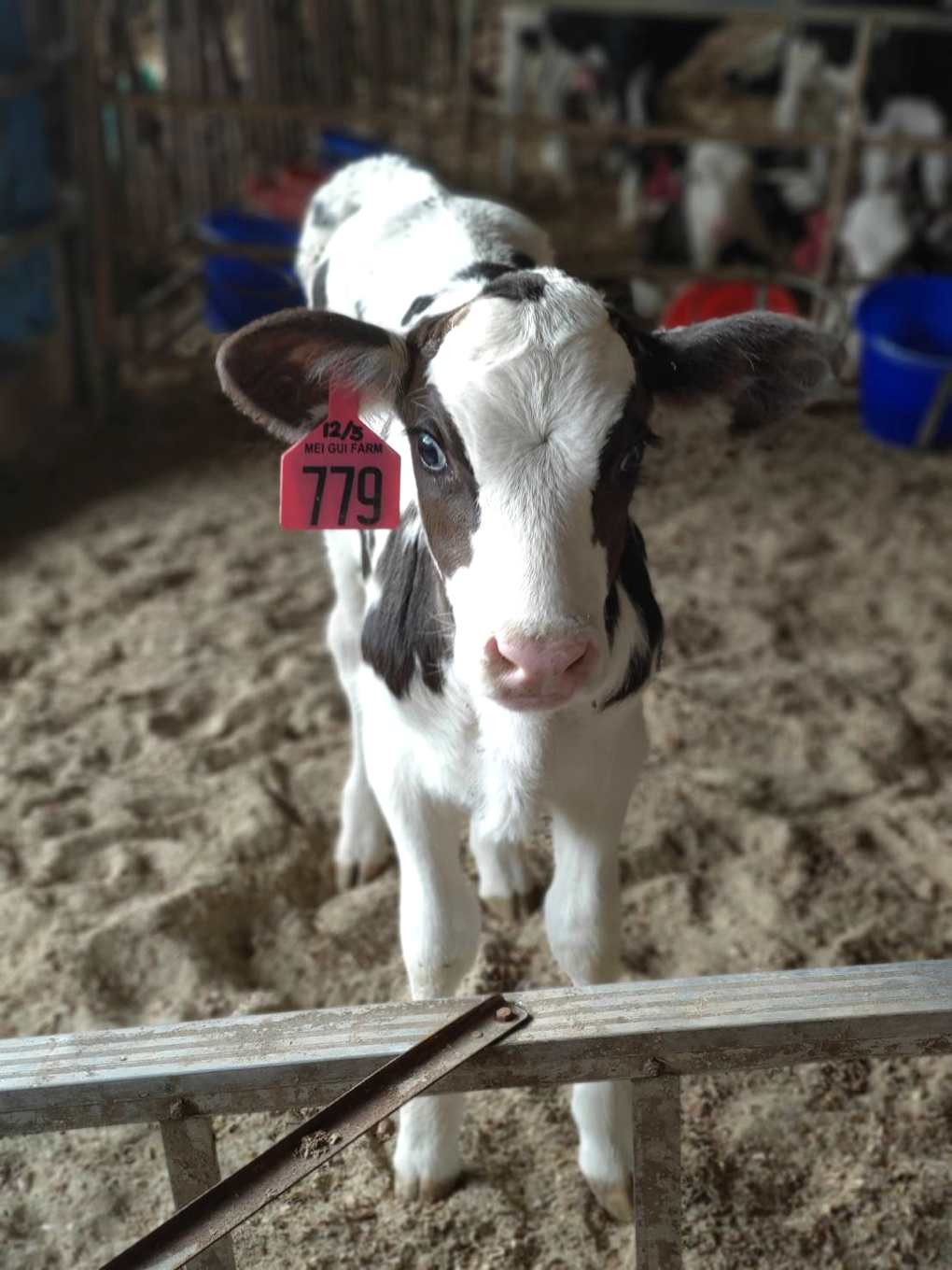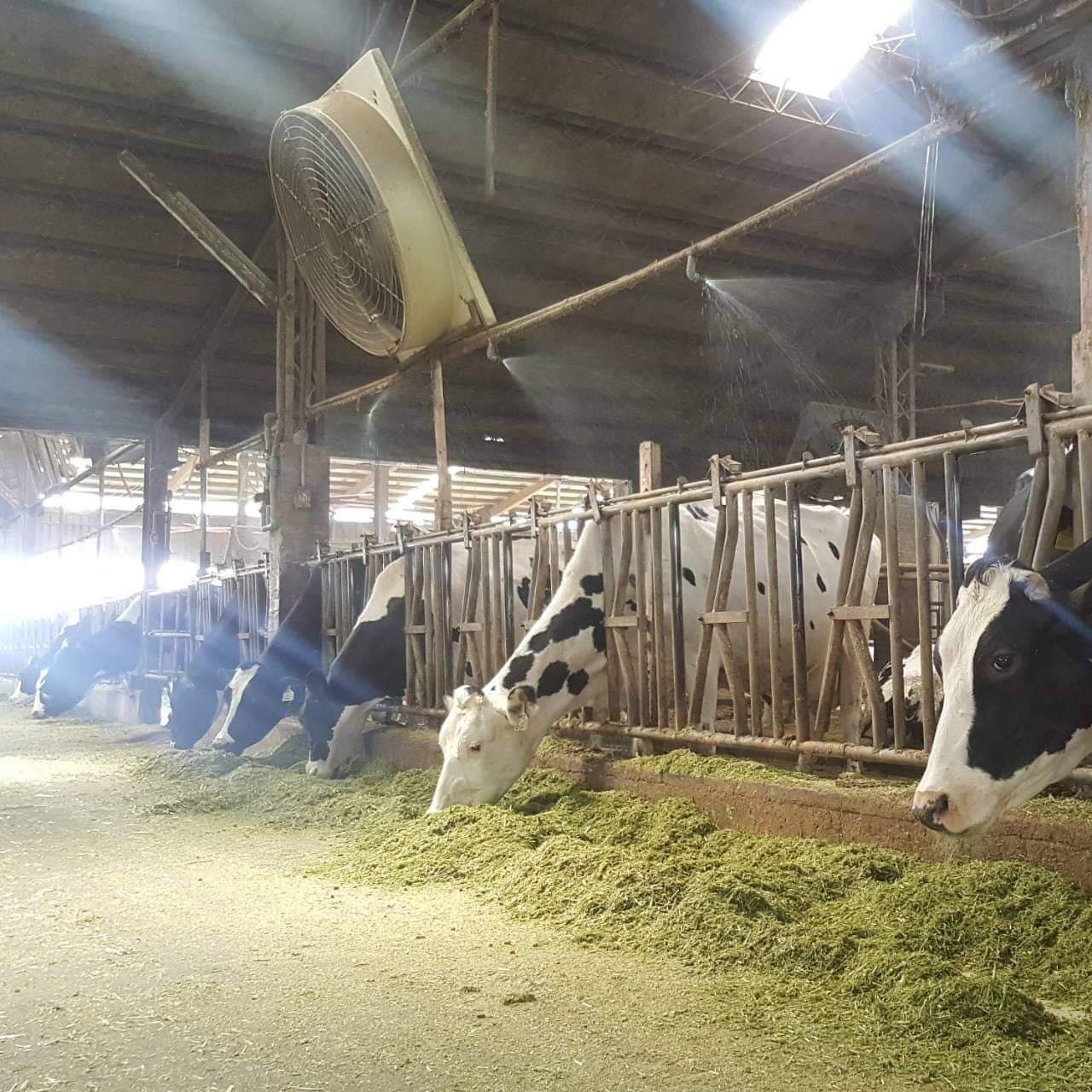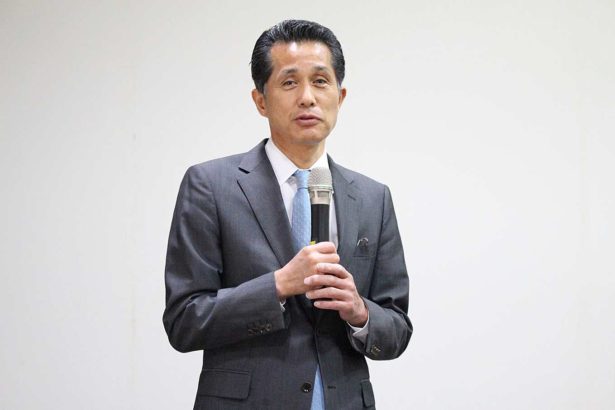Dairy Farmer: don't wipe out the efforts of dairy farmers. AP: the government and the dairy industry need to set animal welfare indicators.
ShareTweetPocketEmail0 Shares
The Taiwan Animal Society Research Association recently revealed that more than 50% of Taiwan dairy cattle breeding has five major problems, including negative energy balance, heat stress, lack of professional care, etc., which triggered a strong reaction from the dairy farming community. Professor Hsu Chi-tai of the Department of Animal Science and Technology of National Taiwan University estimates that about 10% to 20% of dairy farms can be regarded as "late stage classes" and their performance is relatively poor, while the rest should be above standard.
Dairy farmers stressed that it is impossible to abuse cattle, cattle uncomfortable will not produce milk,"only to make cattle comfortable, we have a return." Gan Chih-jen, director of Meigui Farm, points out that in order to alleviate the heat stress of dairy cattle, most farms have installed sprinklers and electric fans to dissipate heat from the cattle. Lu Guanchen, manager of Yangliu Ranch, says that most dairy farmers are kind to cattle. A few farms are limited by the fact that dairy farmers are old and have no one to help them. They may have more than enough energy and need technical personnel to guide them."But more and more dairy farmers are willing to improve, otherwise they will be eliminated."
Chen Yumin, deputy chief executive officer of the Taiwan Animal Society Research Association, said that dairy farmers face challenges such as weather and manpower shortage, calling on the government to assist dairy farmers in upgrading the industry, formulating "animal welfare standards" and proposing specific supporting programs, and calling on the dairy industry to propose specific "animal welfare policies for milk purchase", aiming at dairy farmers who take care of dairy cows with heart to give better purchase prices, in order to assist dairy farmers to invest in improving pasture equipment.


The pasture is equipped with water spray and large fans to cool cattle (provided by Yangliu Ranch)
Solving the heat emergency starts with breeding, Israel breeds heat-resistant dairy cattle
Chen Yu-min says that although dairy farmers have tried their best to cool their cows by spraying water, it is still difficult to completely solve the problem. The government should actively adopt breeding and improvement methods to cultivate dairy breeds that are more suitable for the local climate.
For example, in Israel, where the weather is hot, 90% of the pastures have participated in the Dairy Performance Improvement Project (DHI) launched by the government to collect comprehensive information on the health and milk production of individual cattle from birth to culling. There are breeding associations, bull breeding and artificial insemination centers and veterinary service teams to cultivate dairy cattle breeds suitable for heat tolerance and systematically manage the health of dairy cattle.
The DHI programme in new Zealand is a collaborative effort between government and academic institutions, with counselling teams dedicated to assisting farmers in solving problems. In addition, a high proportion of pastures in various countries use an "electronic health monitoring system" to manage the health of each cow, monitoring the feed intake, respiratory heartbeat, rumination rate, lying time and other values of cattle at any time, and regularly evaluating the posture and movement status of cattle by professionals or veterinarians, so that caregivers and veterinarians can adjust and care for different nutritional requirements according to the physical condition of each cow at any time.
Dairy companies are also responsible for publicly stating animal welfare policies and dairy acquisition principles
In addition to calling on the government to establish a system, Chen Yumin said that almost all milk produced by dairy farmers is handed over to 29 dairy companies in Taiwan. Dairy industries must formulate animal welfare dairy purchase policies. Dairy farmers who take better care of dairy cows should purchase them at better prices. They should also disclose welfare indicators and milk quality evaluation to society, providing consumers with the right to know.
Some dairy companies claim that the purchase of milk is in line with animal welfare, but refuse to disclose the evaluation indicators and content, claiming that this is the company's "know-how" can not be announced, the attitude is questionable. Chen Yumin, for example, in foreign countries there are perfect dairy cow welfare indicators, such as must have a well-designed "cow bed", so that long-term need to lie down dairy cattle have a suitable place to rest, but also can improve the milk yield of cattle, dairy companies must clearly put forward indicators, rather than just claim to meet "animal welfare" but fail to provide a third party impartial unit inspection.
Scholars: Most farmers try hard not to be critical, Taiwan has not done pasture evaluation for more than ten years
Hsu Chi-tai, a professor of animal science and technology at National Taiwan University who has long studied dairy farming, says that Taiwan has more than 500 registered pastures, and because Taiwan has not evaluated pastures for more than a decade, he cannot judge whether more than half of them do not meet animal welfare standards. However, according to his understanding, about 10% to 20% of the pastures are not performing well, others should be up to standard, dairy cattle care work is heavy, most dairy farmers work very hard, he said,"I can't bear to criticize".
Hsu Chi-tai admits that if Taiwan's natural climate is taken into account, every pasture will have a heat stress problem, but the degree is slightly serious. For example, if the farmer uses spray to cool down, if the spray water is first chilled, the spray effect will be better than normal temperature water. Or install solar panels on the roof, Prince Tower or ventilation gyro, so that hot air does not pour into the ground, etc., can minimize the pressure of cattle.
Xu said that the commercial life span of foreign dairy cows is mostly over 8 years old (5.4 years in Taiwan). Whether dairy cows have a good "confinement" after giving birth and provide high concentrations of nutrients to reduce "negative energy balance" will affect the health of dairy cows. If a cow is not well done in confinement, the body immunity is poor, and there is a slight error in the labor milking disinfection, it is easy to develop mastitis, which makes the weak cow weaker. If the confinement is well done, the mastitis data will also drop.
The establishment of a cattle welfare guide within one year requires discussion from all walks of life
Xu Jitai said that the Agriculture Committee has commissioned a "Cattle-friendly Breeding Guide", hoping to formulate clear indicators within one year, including different needs from calves, female cattle, pregnant cattle and lactating cattle, and provide specific indicators. For example, guidelines need to be drawn up after full discussion with civil society organizations and the industry on what kind of space environment cattle need at different stages and what standards cooling equipment should meet.
Hsu Chi-tai also reminds that if guidelines are only formulated without evaluation, animal welfare may not be implemented. In addition, should the standard be set to adopt a "low standard", as long as the pasture can meet the basic conditions, or should it adopt a "high standard" with strict requirements, but only a few pastures may have the willingness to challenge, and other dairy farmers may even think that they are "forced to leave the pasture"? all these require thinking from all walks of life.
Another unnamed animal husbandry scholar said that it is a good thing for the movement to raise the issue of dairy cattle health, but the interpretation of the real physiological state of dairy cattle and the field practice of dairy farmers is not completely correct. Not only does it not help guide dairy farmers to solve the urgent key problems of transformation and achieve the goal of improving animal welfare, but it is easy for the public to misunderstand the dairy farming industry and cause harm. "The improvement of each project in terms of technology represents a huge investment in professional human equipment resources, which will be directly reflected in the price of fresh milk, which requires corresponding support from the consumer market in terms of price and assistance from the competent authorities in terms of laws and regulations."
ShareTweetPocketEmail0 Shares
- Prev

Village and local creation 19 "Lijian Mayor Yamaguchi stretches the tree: it is the most difficult to change the residents' consciousness, and the regional revitalization team brings a new vision.
Village and local creation 19 "Lijian Mayor Yamaguchi stretches the tree: it is the most difficult to change the residents' consciousness, and the regional revitalization team brings a new vision.
- Next

Jinmen County Water Test Institute "season limit-fresh kelp" went on sale today (22).
Fresh kelp raised by Jinmen County Aquatic products Experimental Institute is on sale! Jinmen spring restrictions ~ fresh kelp, will begin to harvest on April 22, and at 01:30 in the afternoon in the water test square for sale, the price is the same as in previous years 3 jin 100 yuan.
Related
- A course of planting techniques and methods on how to grow carrots
- How to plant the latest tulips?
- Is it better to pick tea in the morning or in the afternoon? When is the best time for tea to be picked? what is the third or fifth tea?
- Launch Yuanxiao Happy combination Haocha + Tea Yuan healthy Taste
- Penghu Tourism "Fireworks 20 Parade with You"
- 2022 West Lake Happiness holds "Digital Revitalization Voucher" and draws iphone13 and laptop.
- Banqiao Fuzhou social houses are designed to change start-up combined with police elimination to create a safe and livable environment
- The convenient measure of "mechanical weeding" in Xinbei has been abused and the Agriculture Bureau has imposed heavy penalties on the illegal land consolidation.
- Changgeng University Joins Hands with Four Memory Factories to Rescue Memory Talent Shortage
- The list of Taiwan's top 100 MVP managers is listed by the Director-General of the Farmers' Association of Sanxia District.

